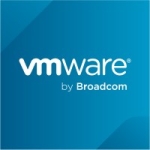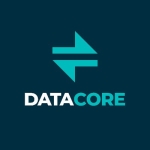What is our primary use case?
We purchased it about five years ago to replace our existing traditional SAN server VM environment. At that time, SimpliVity was the only platform that could house an enterprise-level SQL database. Nobody else had a platform that could handle SQL transactions without imploding. Everybody has got that figured out by now, and it is understandable.
We are using an older version because we purchased SimpliVity before it was owned by HPE. After about six to eight months of its implementation, it was purchased by HPE. When we purchased it, it was on the Cisco UCS server platform.
What is most valuable?
SimpliVity is integrated with the hypervisor, and you have a single pane of glass. It is really hands-off. Once you set your backup schedules, you're done. I'm not creating and tearing down virtual servers a lot. Our environment is fairly static, so unless I get an alert on something being wrong, and there is any predictive failure on a hard drive, I don't have to touch it. It is just on cruise control.
It doesn't take long to mount the entire VM somewhere and then copy it. That's one of the things that I like about SimpliVity's deduplication and compression. I can literally stand up a backup in minutes. It is like no time at all. They've got pretty phenomenal deduplication and compression. Within SimpliVity, one of the things that they do is deduplication and compression on ingestion. So, on the front side, everything is deduplicated and compressed, which, of course, adds some overhead to their solution. For instance, in my environment today, I've got roughly 30 terabytes of raw storage, and with their deduplication and compression, I'm over the 300 terabyte threshold with my active servers and all my backups.
What needs improvement?
There is a file size limitation when you want to do an individual file restore, but they might have resolved this in newer versions. As I'm taking backups at the VM server level, I can restore a file from any one of those without standing up the VM, and I can restore it to any mounted VM that I want. The problem is that there is a file size limitation. It becomes problematic when I'm trying to restore. When I want to restore a backup of a SQL database, my backups are considerably larger than 10 gigs. So, the only way to restore that backup file is to mount the entire VM somewhere and then copy it, which doesn't take long at all.
Every now and then, we would have an instance where the replication of a backup wouldn't complete in a timely manner, and that would get it all wigged out in terms of how it maintained the files in the background, the way it knows whether a file has changed or not, and whether it is backed up and replicated. We would basically just suspend that backup for a little bit, do a manual backup of that server, and completely replicate it to other sites. We would then turn the regular backup routine back on, and then it would be fine. So, that's all dependent on the bandwidth.
For how long have I used the solution?
It has probably been five years. We have been using it before it was owned by HPE.
Buyer's Guide
HPE SimpliVity
October 2025
Learn what your peers think about HPE SimpliVity. Get advice and tips from experienced pros sharing their opinions. Updated: October 2025.
872,098 professionals have used our research since 2012.
What do I think about the stability of the solution?
Its stability is great. When we put our servers in, solid-state arrays were not a thing. The performance five years ago was exponentially high. So, we went with 24 servers, and four of them were solid state. The other 20 were large spinning disks, and obviously, performance is way better today because solid state is more price effective now. So, you get the speed of that, but we're getting ready to replace it with something because SimpliVity has completely stopped supporting their solution on Cisco hardware. I'm now running it without a maintenance contract.
How are customer service and support?
Their support is good. HPE is a big organization, and they handled keeping that support group together very well. You call the same 800 number that everybody else does, but once they identify it as a SimpliVity issue, you get transferred over to that group right away. Instead of trying to disseminate that knowledge amongst their existing engineers, they appeared to have kept the little nucleus of those knowledge-based guys. So, when I called, I had people who knew exactly what was going on.
How was the initial setup?
It was almost hands-off to me. SimpliVity did it, but it was just about migrating over the VMs. You temporarily mount your existing VM environment in your new cluster or show it as a separate cluster, and then you just migrate them over. It is all done through the utilities that are built into the VM.
What's my experience with pricing, setup cost, and licensing?
We spent $250,000 back in the day, and that was for two servers in my data center for that cluster. We then ran what they call an arbiter, and that took the place of a third server or the third node in the cluster. My DR site was one standalone server, and its horsepower was more than the two at my main site. It included my Cisco Switches that I needed to re-upgrade. It was comparable to what we were paying a year in VM.
What other advice do I have?
I don't know if it's my HPE reseller or if it's an actual HPE initiative, but they're not pushing me to go with SimpliVity. They don't want me to go with their other storage solution with which they are leading more. In the research that I've done, I've found out that I can run SimpliVity on top of that storage solution. If I wanted to do that, HPE does offer that configuration.
While sizing your storage, knowing how a solution or a vendor does compression and deduplication is important. For example, Scale doesn't do compression and deduplication on the front side. So, you've got to make sure that you've got that accounted for, especially when you start doing backups.
They were definitely a 10 five years ago when we implemented them. What they were doing was incredible. The rest of the market and all other technology providers have caught up with what they're doing. I don't know how they stack up and compare to everybody now because I've been out of the loop long enough to know that. It is probably a level playing field as it boils down to today's market. I would still give them a nine out of 10 because they do have good service. My hardware is five years old, and it is not HPE hardware. I get it that it is time to renew.
Which deployment model are you using for this solution?
On-premises
Disclosure: My company does not have a business relationship with this vendor other than being a customer.















